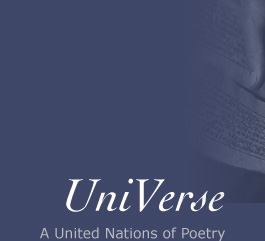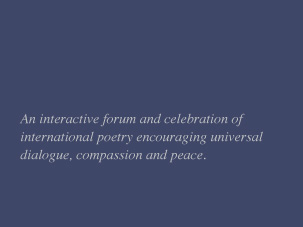| |
 |
 |
 |
Inara Cedrins received her B.A. in Writing from Columbia College in Chicago and her M.A. in Arts Administration at the School of the Art Institute of Chicago.
She is multiculturally oriented. Of Latvian descent, she translates poetry and prose from the Latvian into English. Her anthology of contemporary Latvian poetry, written while Latvia was under Soviet occupation, was published by the University of Iowa Press, and she is currently working on a new Baltic anthology.
Inara went to the Central Academy of Fine Art in Beijing in 1998 to study traditional Chinese ink painting on silk, remaining five years to teach at universities including Tsinghua University and Peking University, as well as to the People's Liberation Army and students at the Central Academy of Fine Art, designing the courses and using poetry as a vehicle. Two collections of her poetry were published bilingually by the Foreign Literature Press in Beijing. During the 1999 Chinese New Year break she traveled to India, and returned in 2000, to study the Indian method of painting on silk, and to complete the collection of poetry titled Honey Water in the Harsh Palace, which was to be the third book of the trilogy published by the Foreign Literature press.
In 2003 she went to Nepal to study the technique of thangka painting; wrote a book on Symbols and Gods of Tibetan Buddhism and Hinduism in Nepal for Pilgrims Press and coordinated the illustrations by a Tibetan thangka painter and a Newari artist. After the king’s coup d’etat, she relocated to Riga, where she started a literary agency called The Baltic Edge and taught Creative Writing at the University of Latvia. She currently lives in the Albuquerque/Santa Fe area.
|
 |
 |
| Walking to my Uncle’s Funeral |
English |
 |
|
 |
|
English
version
Walking to my Uncle’s Funeral
Here, on Marija street, I once ran into him
and said, let’s go have ice cream: the vanilla
had raisins in it, and he didn’t like that, saying
they don’t belong in ice cream –
I’ll spit them out! The woman selling cones said
you can’t do that, it’s food. Here
surrounded by the golden wood of the apartment
she was born in, the general’s daughter stirs cream
into chanterelles, and singes the jackets of potatoes
the way her love showed her, to make the insides flaky.
How can they be so fussy about food, she marvels,
when they were both in Siberia? Ate puree of nettles
until now her man will only eat clear soups
so he can see what’s in there, no potage.
I never thought I would be so weak, my uncle said;
at fifty I was leaping the high hurdles. Blind his last years,
he still could describe the buildings around my address,
their courtyards. I won so many trophies, he said,
when my sons were small I let them play with them
so they wouldn’t cry when I went out, they ran happily
clinking about. That ringing still seems to hover in the air
like the silvery luster above the tin roofs,
white nights in Riga, light reluctant to descend.
He was a hero in his life, his schoolmate says,
before they tamp the sign of the cross in the sand on the grave
and heap it with flowers. |
 |
 |
|
 |
|





